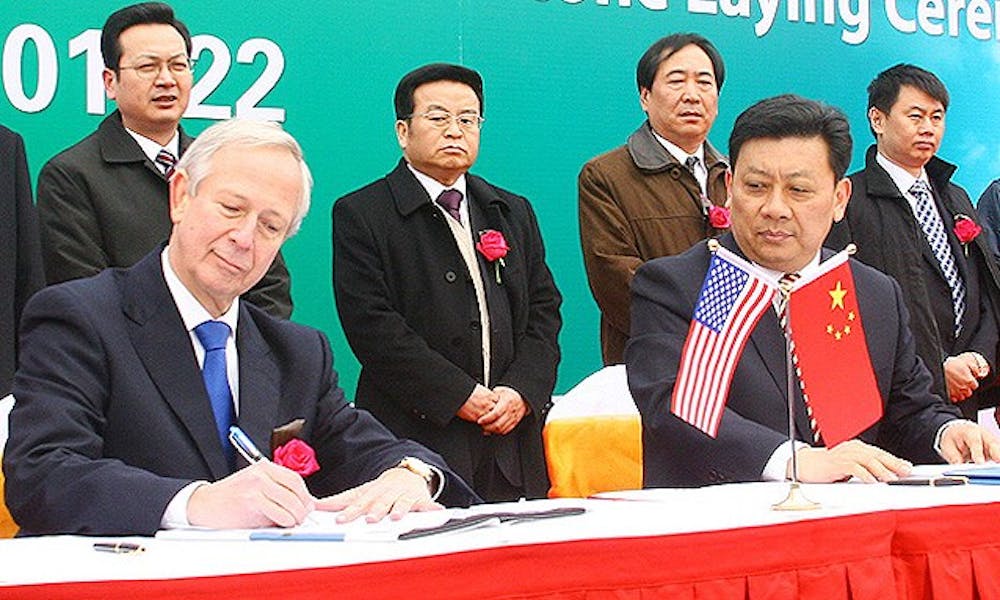One of Duke’s partners in its planned expansion into China may be linked to a series of cyberattacks on Google and other American corporations.
The New York Times reported Thursday that investigators have traced the origins of the online attacks to computers at Shanghai Jiao Tong University and another Chinese educational institution—the Lanxiang Vocational School.
In late January, Duke administrators including President Richard Brodhead traveled to China to formalize the University’s partnership with SJTU to build a 200-acre campus in Kunshan, China.
Duke officials said they are giving their partners in China the benefit of the doubt and are waiting for more information to surface before reaching any conclusions.
“The truth is that we’re concerned to understand this matter better,” Brodhead said Sunday. “We’re not going to leap to any conclusions when the facts are so ambiguous.”
Google announced in January that the company and other American corporations had been victims of sophisticated cyberattacks that aimed to steal trade secrets and computer codes, as well as hacking into the e-mails of Chinese human rights activists.
Details of the possible connection between SJTU and the cyberattacks remain murky, according to New York Times and Wall Street Journal reports.
Media reports have emphasized that it still remains unclear exactly where and with whom the attacks originated, due to the complex nature of Internet espionage. Independent web analysts as well as investigators have said that the responsible individuals or institutions may have been using SJTU’s network as a cover, and the Chinese university itself may have been a victim, according to The New York Times.
“We’ll obviously discuss it with them when the opportunity arises and [talk about] what they think is going on,” Provost Peter Lange said. “At the moment, as the Times story made clear, nobody really knows exactly what’s going on.”
Lange added that Duke officials have not yet made contact with SJTU administrators because of the Chinese New Year holiday.
Brodhead said the University’s relationship with SJTU remains the same as all parties involved wait for more light to be shed on the situation.
“Something has been reported and the reporters made clear that no one really understands what the truth really is,” Brodhead said. “It wouldn’t be correct to change the relationship when the facts of the situation are so ambiguous.”
Administrators also noted that the Duke network has been used in the past by outside perpetrators to launch cyberattacks.
“It is something of concern to us and we are going to explore it further with our partners at SJTU to see if we can better understand the facts of the situation,” said Michael Schoenfeld, vice president for public affairs and government relations. “Duke itself has been the victim of cyberattacks. We’ve also had our network used to attack others through spam and things like that, so we understand the complexities of the situation.”
Get The Chronicle straight to your inbox
Sign up for our weekly newsletter. Cancel at any time.

